
Home alone: Germany’s security and defence policy when its closest allies are gone
By relying extensively on France and the US for its security and defence, Germany could easily find itself isolated and at risk. Berlin needs to act fast

By relying extensively on France and the US for its security and defence, Germany could easily find itself isolated and at risk. Berlin needs to act fast
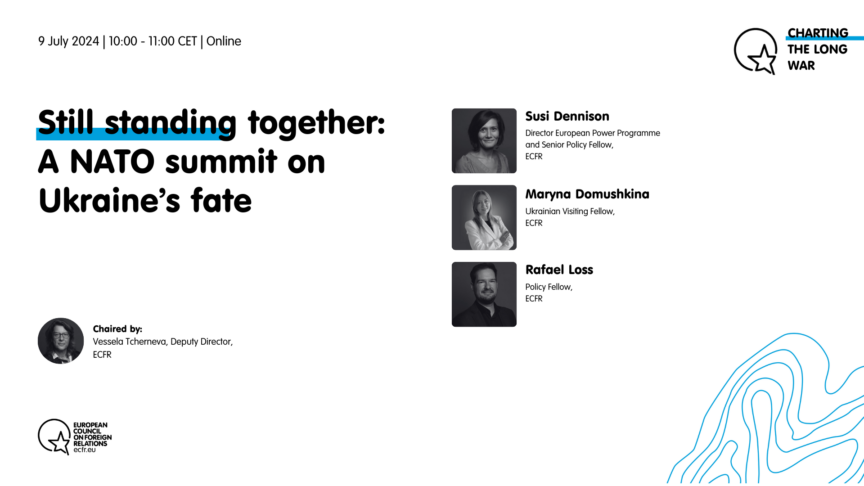
As leaders are about to take pivotal decisions for Ukraine’s fate at the NATO summit, join us for a discussion about pathways and policy options for…
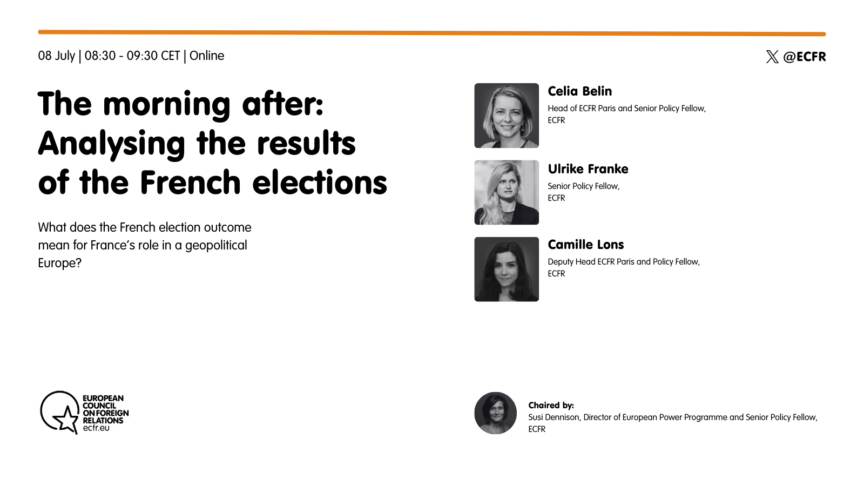
As France discovers the new making of its national assembly, this webinar will analyse the election results and reflect on their impact on a geopolitical…
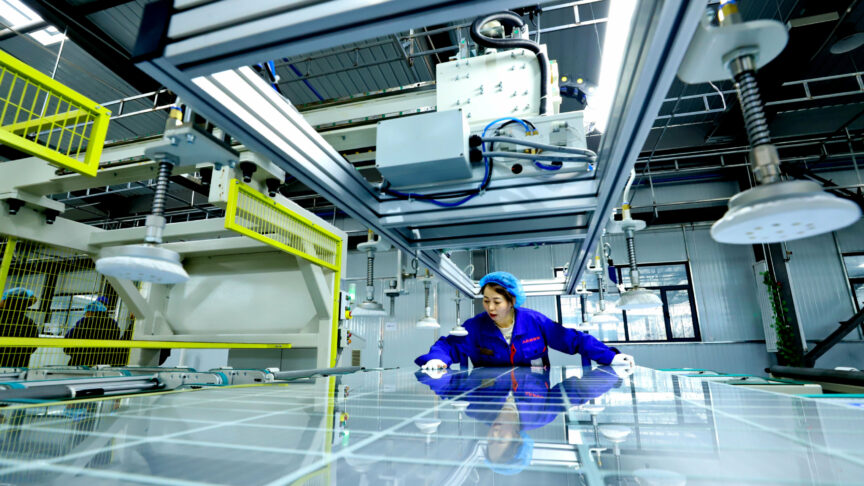
As technological competition between the US and China grows, the EU’s next technology agenda needs to be more assertive to maximise its global influence
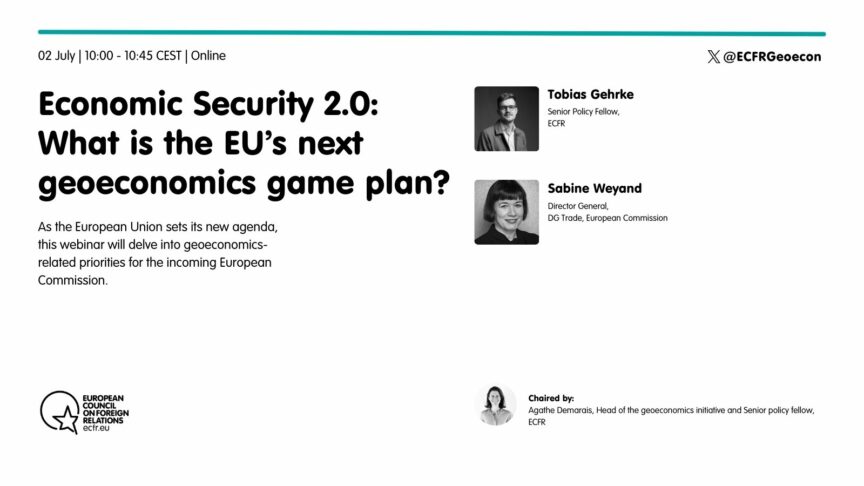
As the European Union sets its new agenda, this webinar will delve into geoeconomics-related priorities for the incoming European Commission. Drawing on two new ECFR…
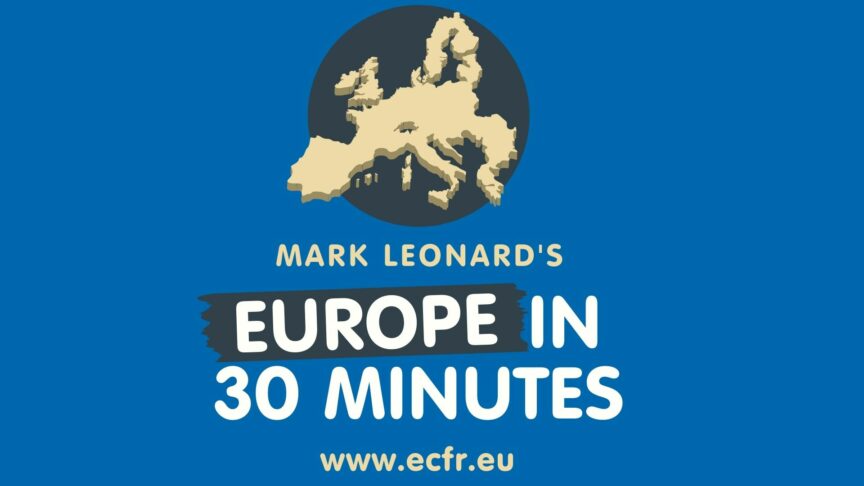
In this new episode, Vessela Tcherneva welcomes head of ECFR offices to discuss national implications of the EU elections
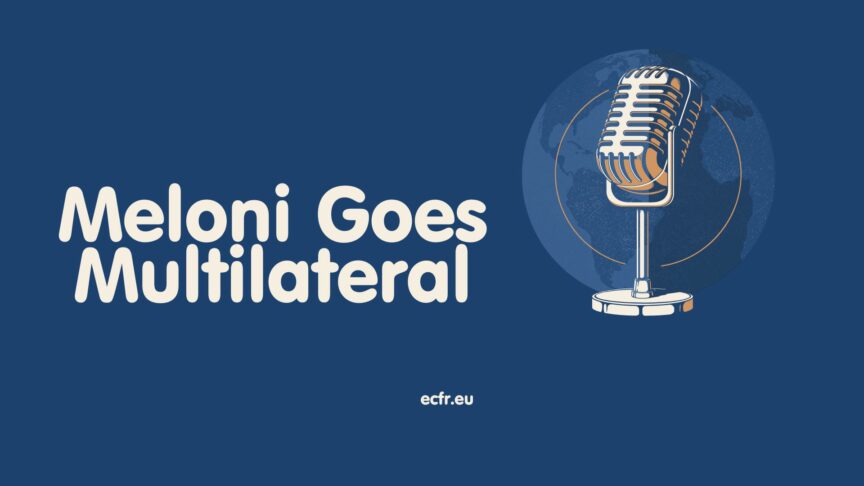
In the first big multilateral test for prime minister Giorgia Meloni, this mini-series will explore the four main priorities of Italy’s 2024 G7 presidency: Ukraine, AI, infrastructure, and Africa
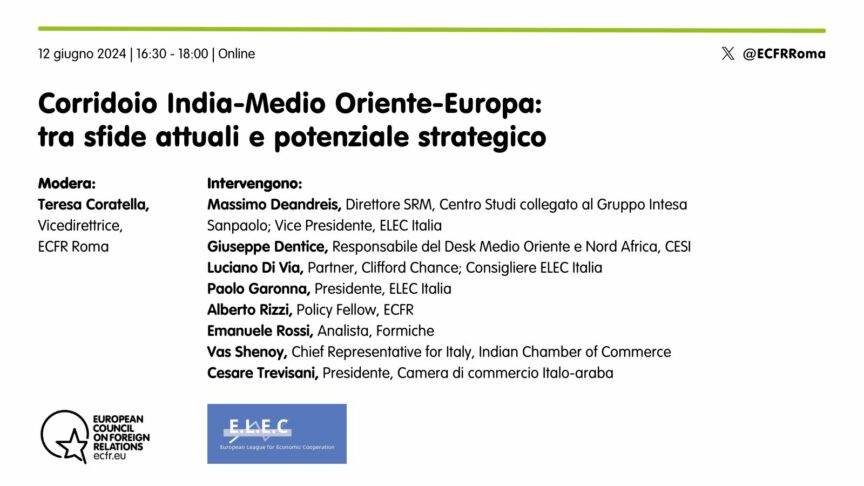
La discussione “Corridoio India-Medio Oriente-Europa: tra sfide attuali e potenziale strategico”, organizzata dall’ufficio di Roma dello European Council on Foreign Relations (ECFR) ed ELEC – European League for Economic Cooperation, avrà luogo, in forma virtuale, mercoledì 12 giugno 2024 dalle ore 16:30 alle ore 18:00 sulla piattaforma Zoom
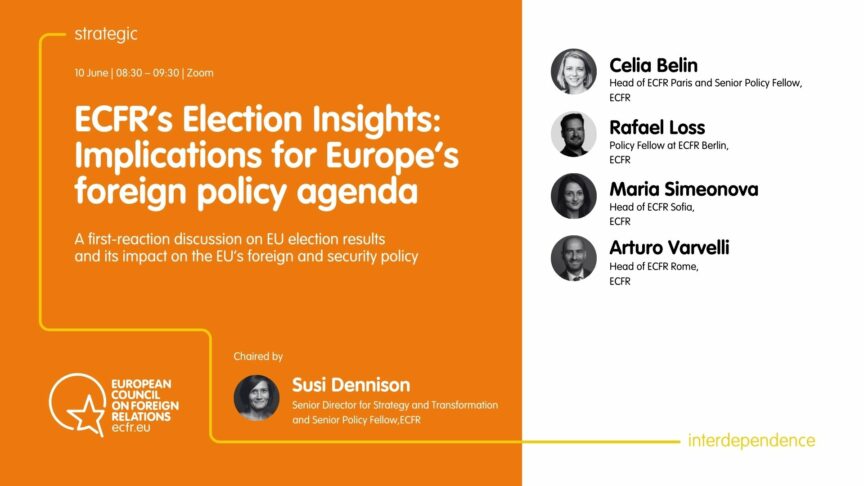
This webinar will provide a snapshot analysis of election results and their implications for Europe’s foreign policy and security agenda. Featuring perspectives from selected ECFR…
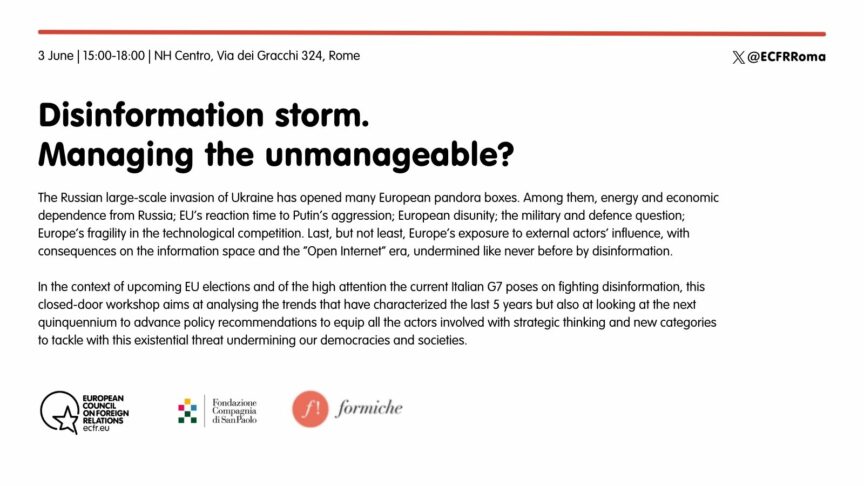
The Russian large-scale invasion of Ukraine has opened many European pandora boxes. Among them, energy and economic dependence from Russia; EU’s reaction time to Putin’s aggression; European disunity; the military and defense question; Europe’s fragility in the technological competition. Last, but not least, Europe’s exposure to external actors’ influence, with consequences on the information space and the “Open Internet” era, undermined like never before by disinformation

The EU can counter Chinese and Russian influence through a digital alliance with countries in Latin America and the Caribbean
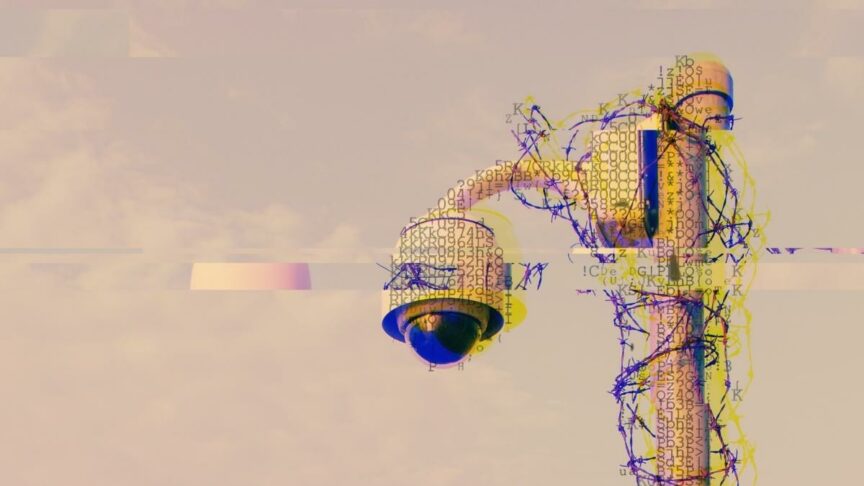
Governments across the world have powerful digital tools to control and repress their populations. The EU should treat this as an urgent security and political concern
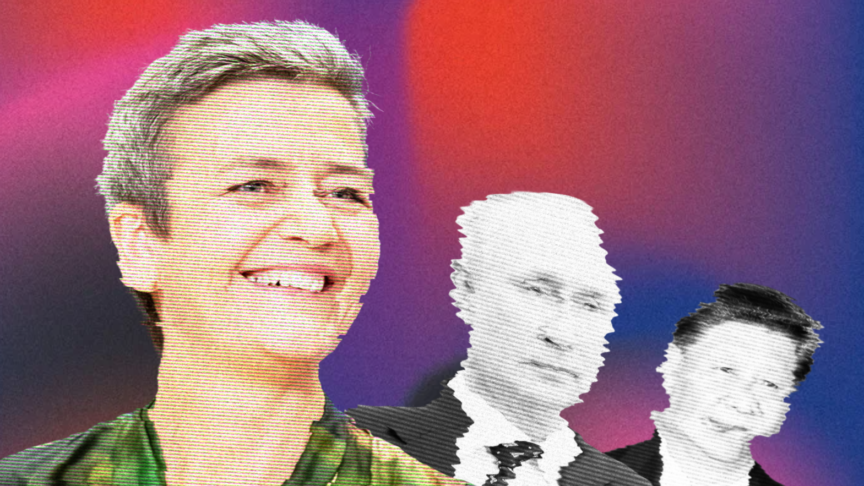
The digital space is a key battleground in today’s global power struggles. For the EU to become a global player in the geopolitics of technology, it needs an ambitious external digital strategy – one that allows it to secure its interests, values, and standing in a world of intensifying geo-technological competition
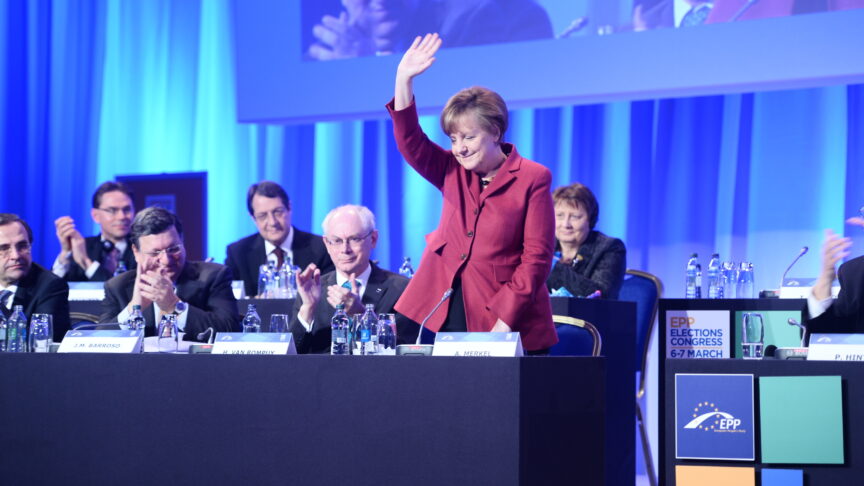
Paradoxically, to fulfil many Europeans’ expectations, Berlin will need to revise the principles of Merkelism that created this trust
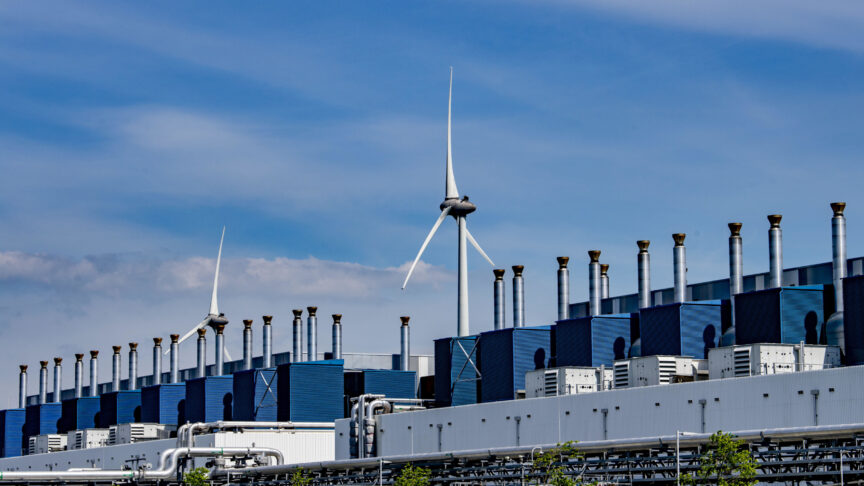
New technologies are a significant force shaping international relations. If the EU wants to be more than a mediator between the US and China, it will need to change its mindset
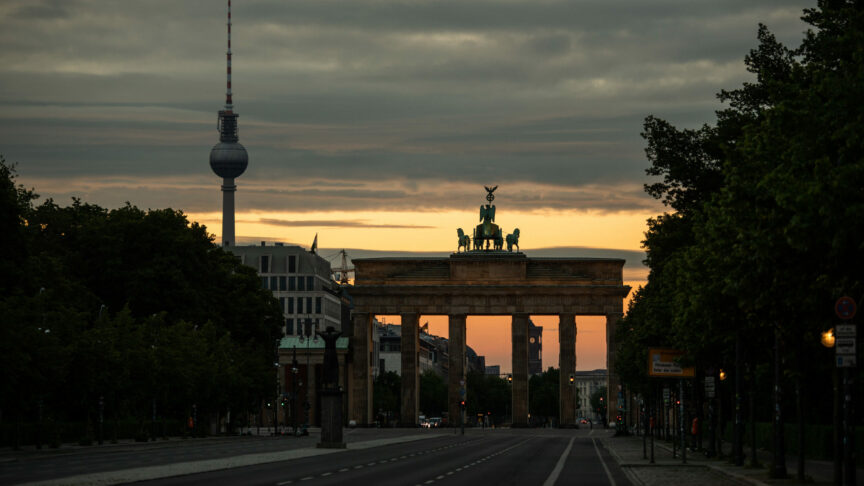
To engage more confidently with a world that is changing, outward-looking Germans need to shape a progressive new national identity before it is defined by the forces of isolation and exclusion
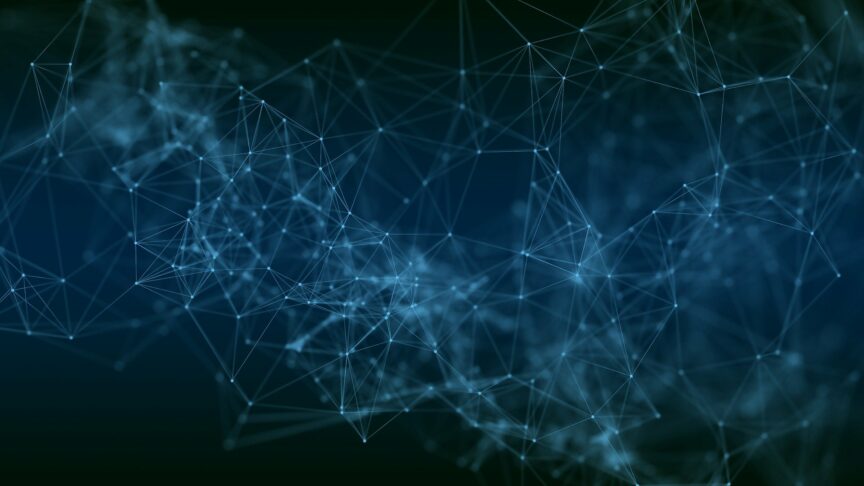
The EU has the ambition and potential to become a sovereign digital power, but it lacks an all-encompassing strategy for the sector, in which individual governments are still the key players
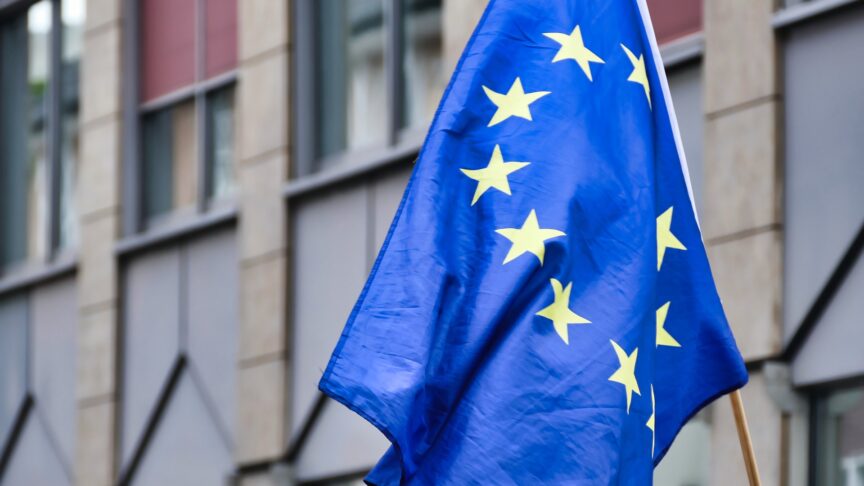
The covid-19 pandemic has brought forward a new agenda for multilateralism, focused on areas including global health, economic recovery, climate, technology, and trade
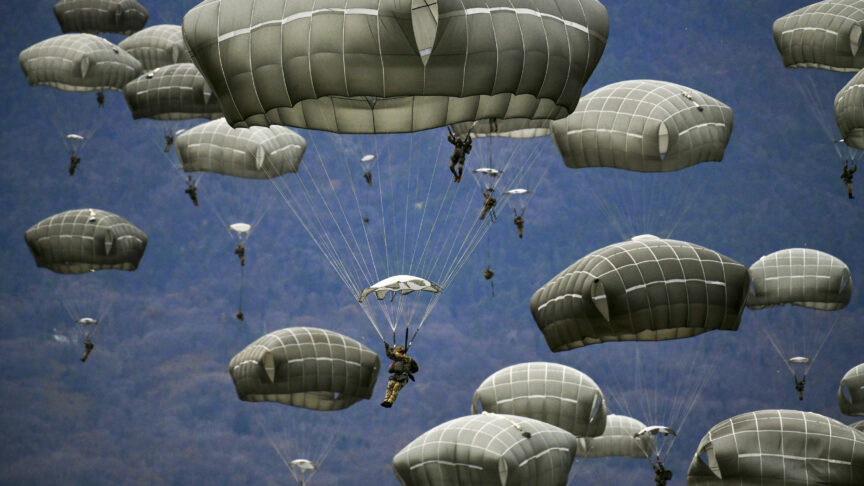
Artificial intelligence is a rapidly advancing field that policymakers everywhere are struggling to keep up with
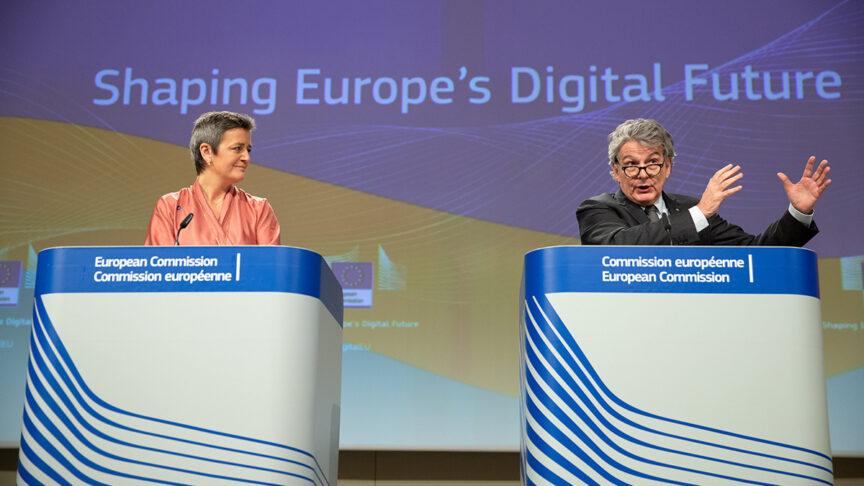
The EU cannot continue to rely on its regulatory power but must become a tech superpower in its own right. Referees do not win the game

By relying extensively on France and the US for its security and defence, Germany could easily find itself isolated and at risk. Berlin needs to act fast

As technological competition between the US and China grows, the EU’s next technology agenda needs to be more assertive to maximise its global influence

In the lead up to the European Parliament election, rising Russian disinformation threatens to sway voters. No matter the election result, the EU should take coordinated and assertive action
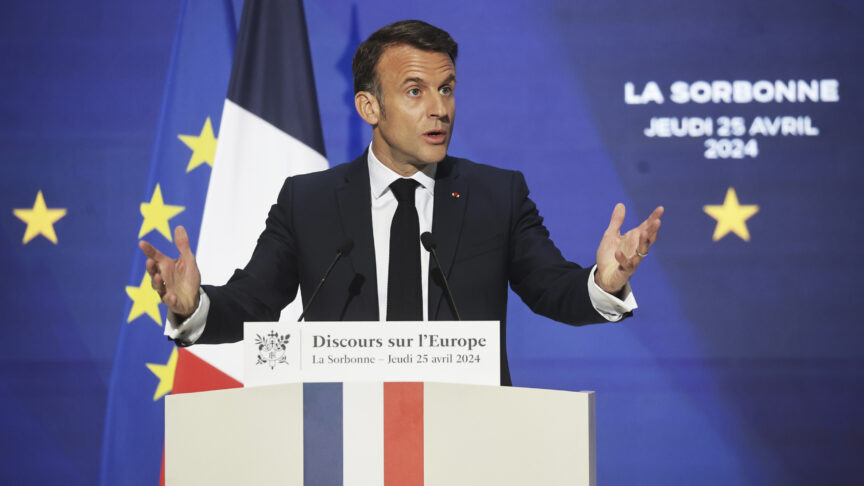
Underlying all the problems that Europe faces in a new age of geopolitical, economic, and climate insecurity is a crisis in leadership. Judging by his recent speech at the Sorbonne, French president Emmanuel Macron could be the politician to supply it, but only if he abandons his standard political playbook

The EU’s plans to upgrade the Middle Corridor trade route may boost Russian and Chinese connectivity with central Asia. But for Europeans, the long-term economic and strategic benefits of going ahead with the development far outweigh these risks
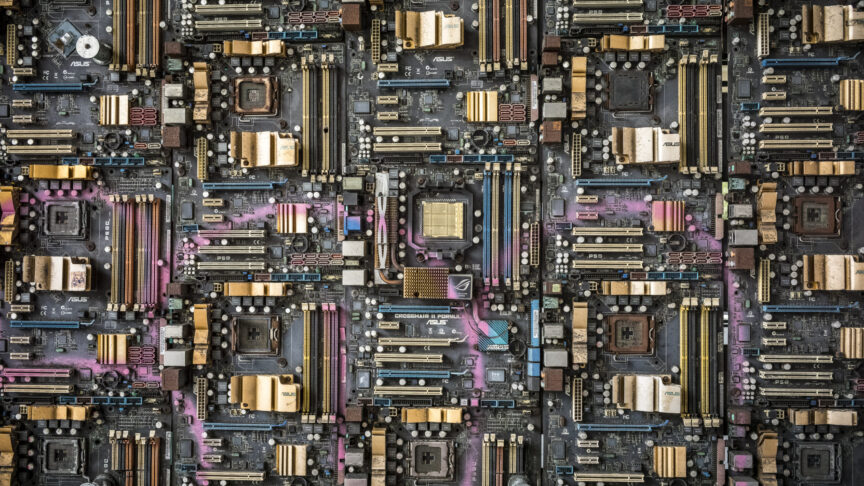
Technology is at the heart of today’s great power struggle. To stand its ground, the EU should not only de-risk its trade ties, but advance its technological edge to build geo-economic leverage
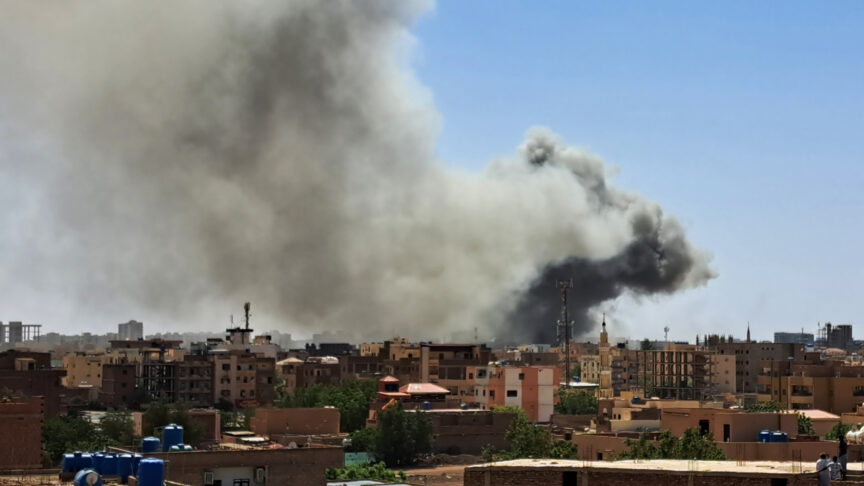
The war in Sudan has given rise to multiple – and sometimes divisive – mediation efforts. The EU and its member states should aim to help unify these efforts and end the warring parties’ ‘forum shopping’
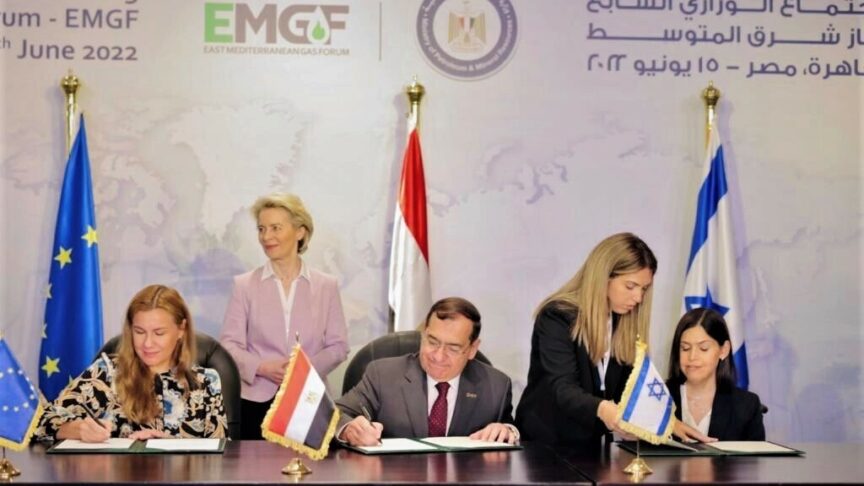
The war in Ukraine has forced Europeans to keep the lights on through adopting a far more strategic approach to their energy security. ECFR’s Energy Deals Tracker has monitored the success of the EU’s energy diversification – and identifies challenges ahead
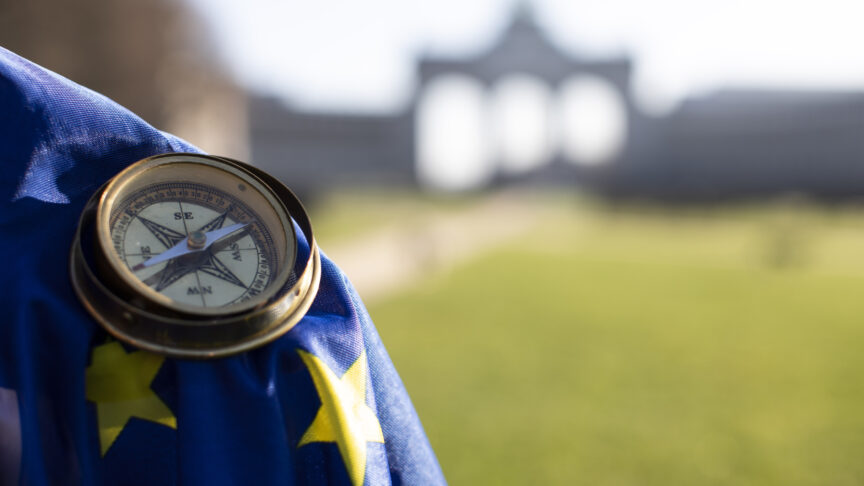
Strategic autonomy is a defensive strategy that sends the wrong message to the world. The EU should instead accept that interdependencies are not only inevitable but desirable, and cultivate them with its allies and partners

Europeans should avoid escalating matters with China in the world of international technology standards – but they should nevertheless remain watchful and establish a platform to monitor developments in this crucial arena
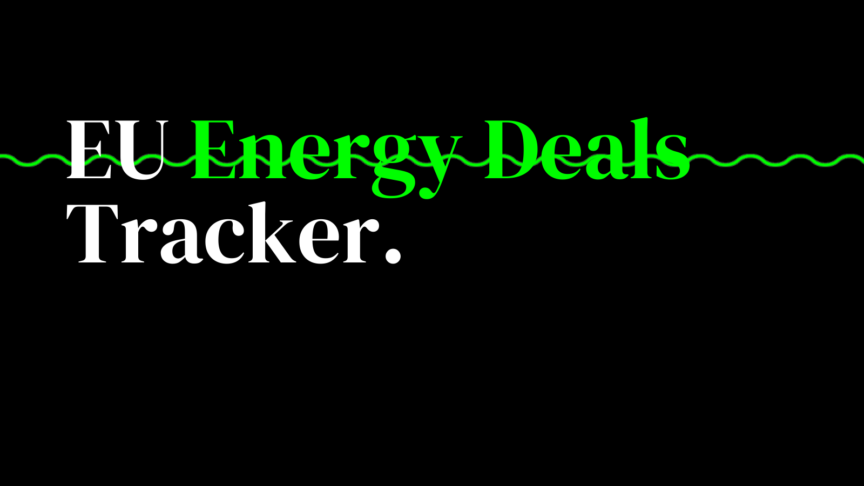
The energy deals the EU and its member states are now making with third countries will shape Europeans’ ability to protect their energy security in the long term. The EU Energy Deals Tracker provides a comprehensive overview of these agreements, including their implications for the sustainable transition
To fulfil its true potential, the EU needs to end its strategic cacophony and focus on capability building
A critical mass of countries agree on the need for more flexible cooperation, but what could it look like?
European leaders are underestimating the danger that Trump presents to the transatlantic alliance and assuming too much continuity in the event of a Clinton presidency

In this new episode, Vessela Tcherneva welcomes head of ECFR offices to discuss national implications of the EU elections

In the first big multilateral test for prime minister Giorgia Meloni, this mini-series will explore the four main priorities of Italy’s 2024 G7 presidency: Ukraine, AI, infrastructure, and Africa

At the Munich Security Conference, Mark Leonard welcomes Arancha González Laya, Camille Grand and Jana Puglierin to understand how Europeans can prepare for a second Trump presidency
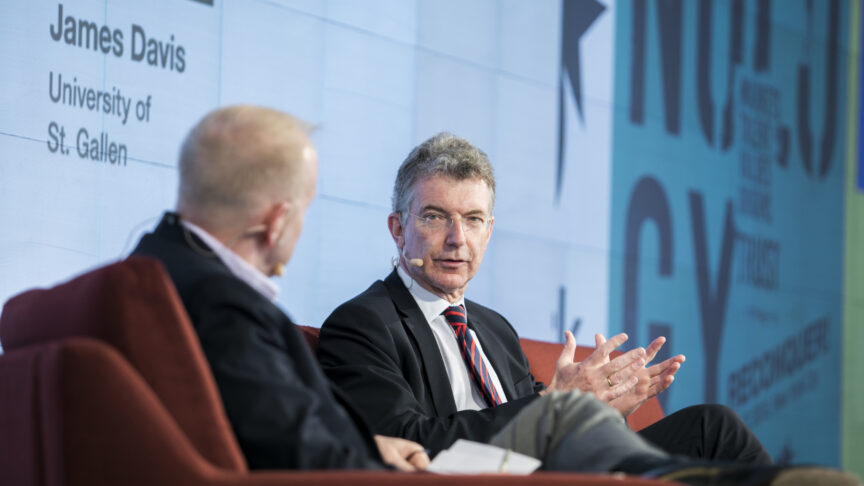
Mark Leonard is joined by Christoph Heusgen to talk about Germany’s foreign policy
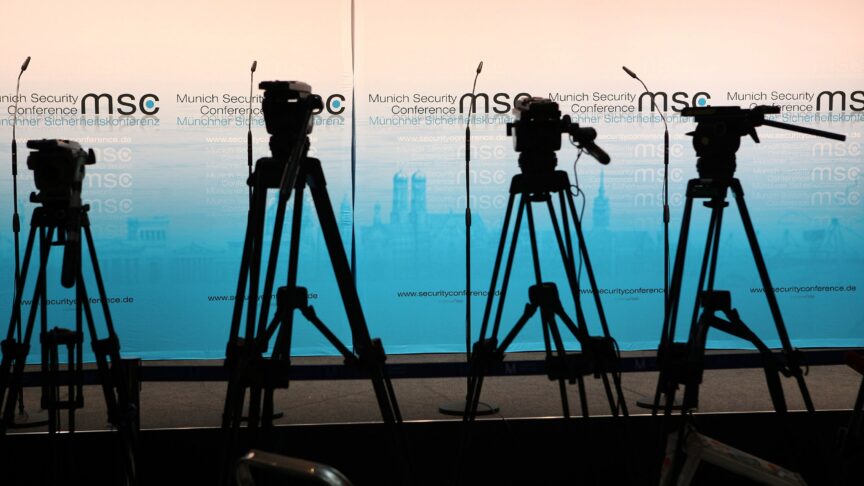
Mark Leonard reports live from the Munich Security Conference
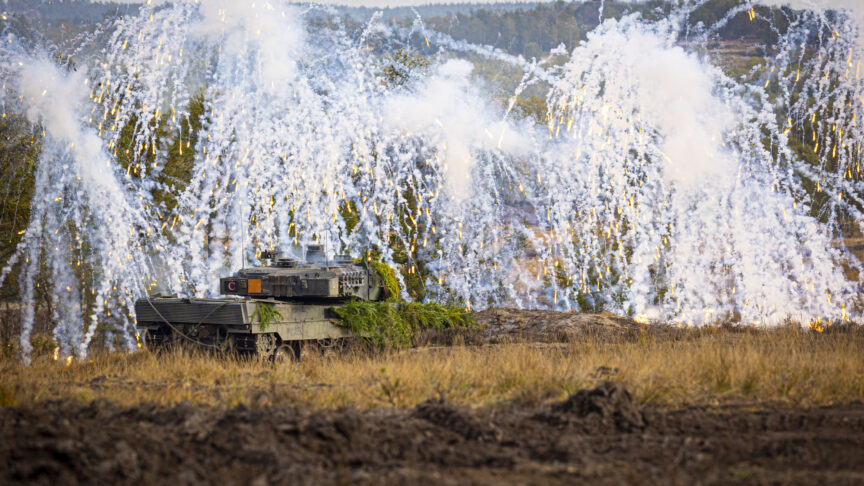
Mark Leonard, Camille Grand, Gustav Gressel, Jana Puglierin, and Jeremy Shapiro discuss what the Leopard 2 decision means for the war in Ukraine
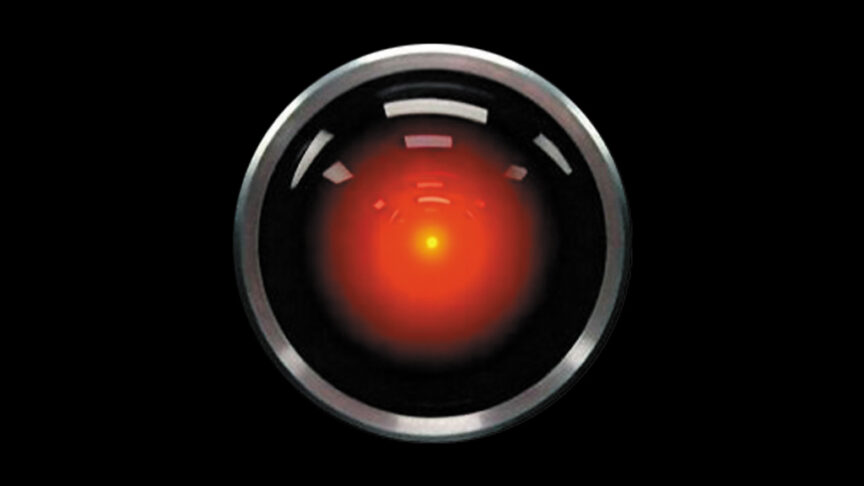
Mark Leonard is joined by Stuart Russell to discuss artificial intelligence’s capabilities to solve global problems and humans’ ability to control its dark side
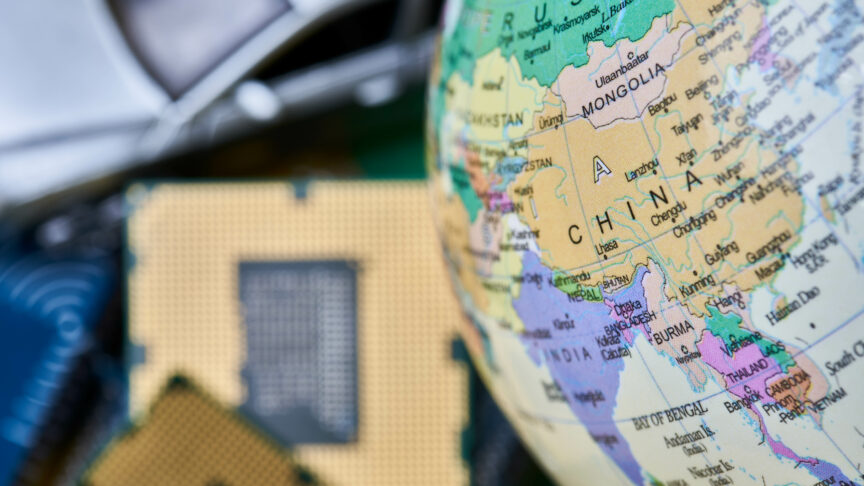
How do chips decide power in today’s geopolitical competition?
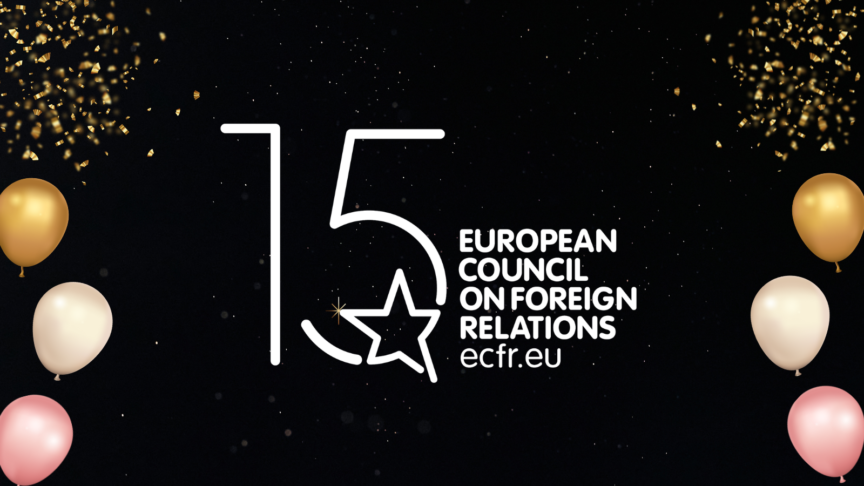
We turned 15! Time to reflect on the past years and ECFR’s role in helping Europe find a strong, united voice
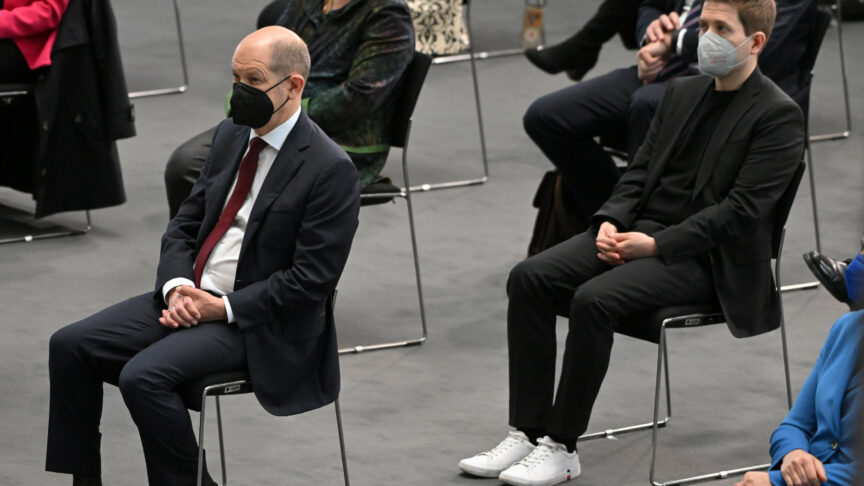
Mark Leonard discusses with Anna Sauerbrey her book “Machtwechsel” and the new generation of German politicians

As leaders are about to take pivotal decisions for Ukraine’s fate at the NATO summit, join us for a discussion about pathways and policy options for…

As France discovers the new making of its national assembly, this webinar will analyse the election results and reflect on their impact on a geopolitical…

As the European Union sets its new agenda, this webinar will delve into geoeconomics-related priorities for the incoming European Commission. Drawing on two new ECFR…

La discussione “Corridoio India-Medio Oriente-Europa: tra sfide attuali e potenziale strategico”, organizzata dall’ufficio di Roma dello European Council on Foreign Relations (ECFR) ed ELEC – European League for Economic Cooperation, avrà luogo, in forma virtuale, mercoledì 12 giugno 2024 dalle ore 16:30 alle ore 18:00 sulla piattaforma Zoom

This webinar will provide a snapshot analysis of election results and their implications for Europe’s foreign policy and security agenda. Featuring perspectives from selected ECFR…

The Russian large-scale invasion of Ukraine has opened many European pandora boxes. Among them, energy and economic dependence from Russia; EU’s reaction time to Putin’s aggression; European disunity; the military and defense question; Europe’s fragility in the technological competition. Last, but not least, Europe’s exposure to external actors’ influence, with consequences on the information space and the “Open Internet” era, undermined like never before by disinformation
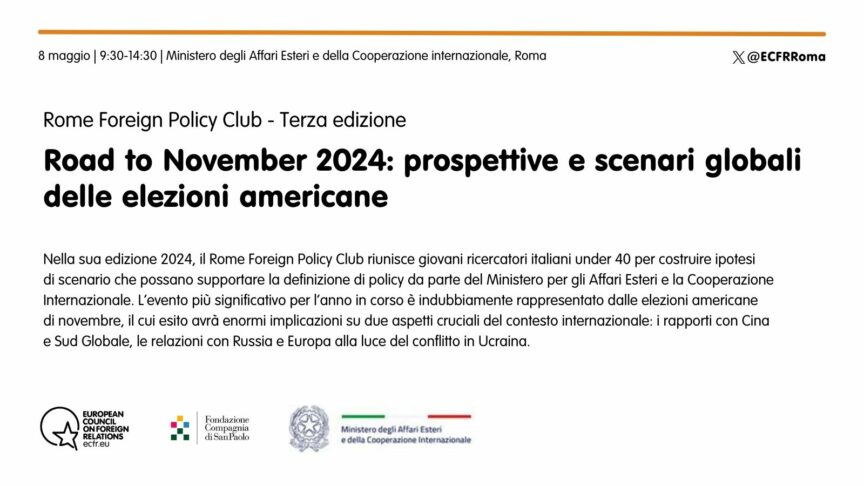
Nella sua edizione 2024, il Rome Foreign Policy Club riunisce giovani ricercatori italiani under 40 per costruire ipotesi di scenario che possano supportare la definizione di policy da parte del Ministero per gli Affari Esteri e la Cooperazione Internazionale. L’evento più significativo per l’anno in corso è indubbiamente rappresentato dalle elezioni americane di novembre il cui esito avrà enormi implicazioni su due aspetti cruciali del contesto internazionale: i rapporti con Cina e Sud Globale e le relazioni con Mosca alla luce del conflitto in Ucraina
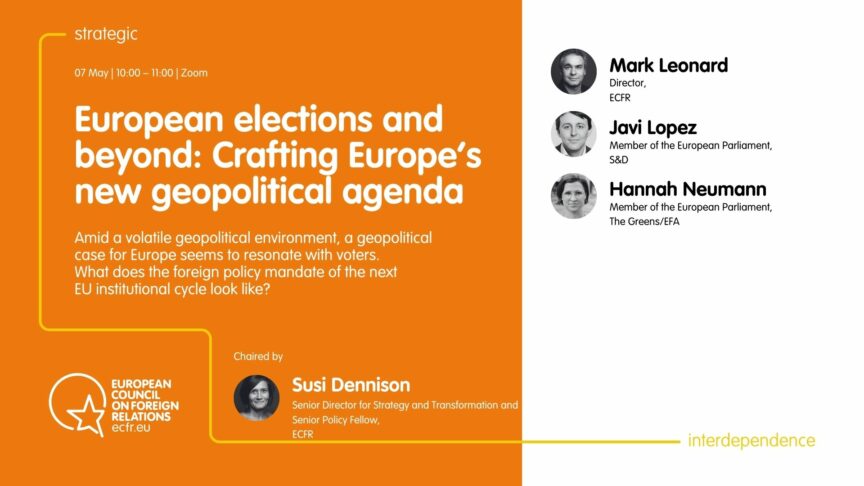
Amid a volatile geopolitical environment, ECFR’s recent public opinion poll ahead of the European elections shows that a geopolitical case for Europe resonates with voters,…
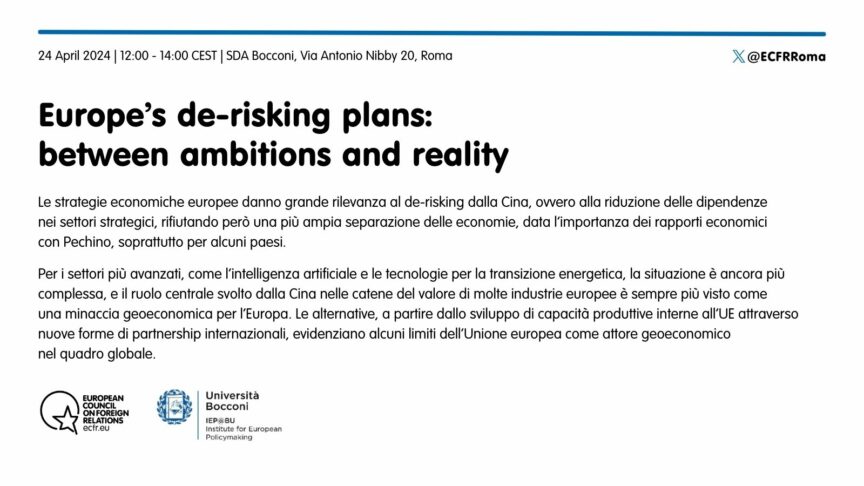
Quarto appuntamento di una serie di working lunch realizzati congiuntamente da ECFR Roma, SDA Bocconi e l’Institute for European Policymaking @ Bocconi University
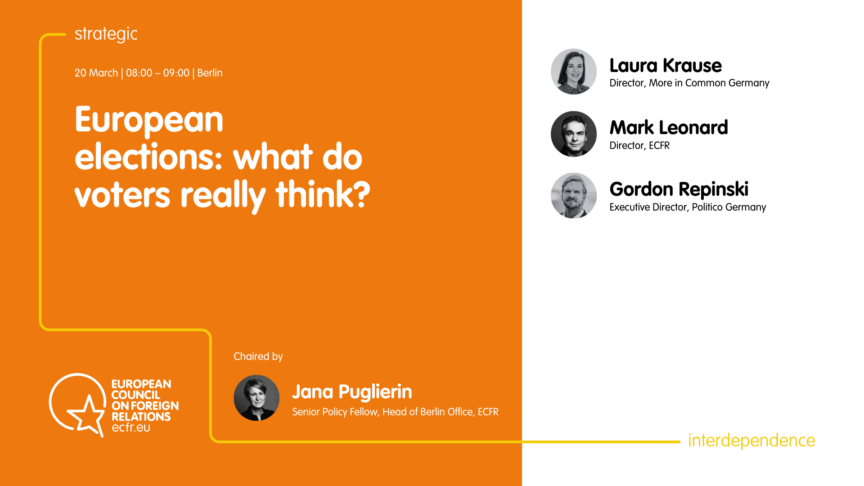
A new opinion poll and four-part strategy on how mainstream parties can campaign to resonate with pro-European voters